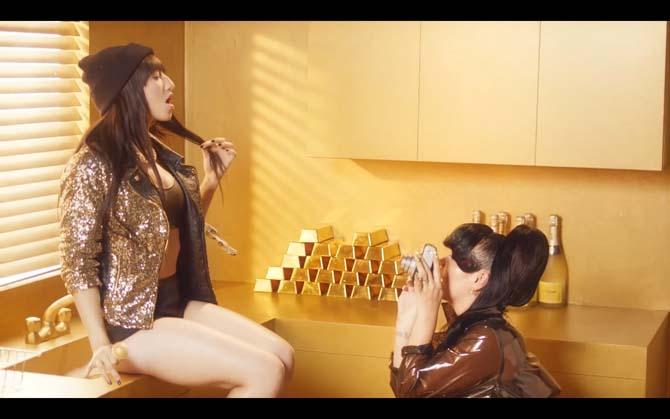In Lily Allen’s latest song, “Hard Out Here,” she highlights the double standard of female and male promiscuity, but then negates her message with the lyric, “Don’t need to shake my ass for you, because I’ve got a brain.”
Earlier this semester, I was fortunate enough to participate in the Student Activity Board’s panel on dating and sex at LSU. While I fully enjoyed being able to speak my mind on issues near and dear to my heart, I also heard something that I have since been mulling over.
The comment was one I had heard before, and most of you probably have as well.
A key that opens many locks is considered a master key; a lock that is opened by many keys is a bad lock.
Of course, this statement was followed by a smug look on the young man’s face, as he had surely stumped me.
And he would have stumped me, had I not been so aware of my place in the world as a human being rather than an object to be unlocked.
However, there are many women out there who are made to believe they are objects of sexuality and their usefulness derives from the number of times they have participated in sexual interactions. They experience the worst sort of criticism, as society tells them they should not be respected because of the sexual choices they have made.
Let’s be clear, slut shaming is not about disrespecting someone who has made bad choices. It is about controlling a woman’s actions.
Laci Green, sex-positive YouTube vlogger, made a video concerning slut shaming, where she made it clear: “We don’t help women, our relationships or our friends by condemning them for their actions.”
Slut shaming is an unproductive cop-out in a society that wants to tell us having sex is the greatest thing you can do, but you should only do it the way they want you to do it.
It’s expressing disapproval because someone isn’t having sex in the way you want them to, which — to say the least — is creepy.
While men are often viewed as the main proponents of this tradition, women aren’t innocent, and sometimes we are the worst.
Female slut shaming is a competition for male approval. And it is because we live in a patriarchy that defines our worth by appearance and gives us very little to define ourselves with otherwise.
In the words of Tina Fey’s character in “Mean Girls,” Ms. Norberry, “When you call each other sluts and whores, it makes it OK for guys to call you sluts and whores.”
There is an immense truth in this statement. Passive acceptance of a term as funny or harmless is perpetuating the problem in its most dangerous forms.
Slut shaming is only a slippery slope to victim blaming, which is a major factor in the massive number of sexual crimes that go unreported. A victim fears that they will be told they were at fault due to their previous sexual choices.
As if they could do something to deserve rape — they can’t.
I wish I could say the panelist who objectified myself and other women with his comments was a minority, but I have heard horror stories.
LSU students have told me stories of picking up birth control and being shamed by pharmacists and questioned of their age, relationship status, etc.
These women are being made to feel bad because they are making responsible choices concerning their reproductive rights.
“One of the major things our society needs to learn ASAP is how to respect each other’s consensual choices about their lives and their bodies,” Green said in her video.
Let’s change the focus from shaming the choice to have sex to being ashamed of making harmful sexual choices — like taking advantage of someone without their consent.
And for every one of you who has ever used the lock and key argument in defense of your slut shaming:
Let’s not forget that a pencil that gets sharpened a lot gets thrown away.
Jana King is a 19-year-old women’s and gender studies sophomore from Ponchatoula, La.
Opinion: Slut shaming is unproductive and dangerous to students
By Jana King
November 20, 2013






